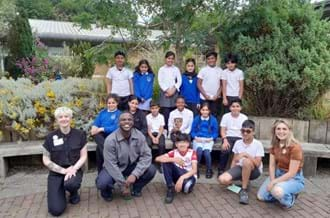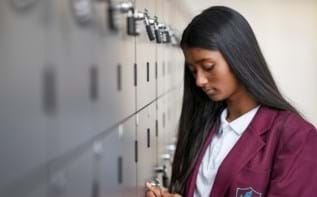Supporting your child when someone well-known dies
Supporting your child when someone well-known dies
When somebody famous dies, it can be difficult to know how to support children and young people through that loss. We’ve shared some advice below.
When someone dies, it is natural to experience a whole range of feelings. Grief is the word we use to describe what can be quite a rollercoaster of emotions in response to loss or death. We often feel grief after the death of a loved one. Or we might grieve when someone famous such as an actor, musician, sports star, or member of the Royal Family, passes away.
The death of someone famous can bring up complicated emotions, especially for children and young people. We often form personal attachments to celebrities. They may have played an important role in our life at some point – by watching their films to cheer us up after a difficult day or by reading their books on a memorable trip.
Sometimes the death of someone famous can also remind us of other losses we have faced, such as the loss of a grandparent, relative or friend. This reminder can amplify our grief even further.
We've shared tips on how to help your child if they are struggling after the death of someone well-known.
Acknowledge their grief
Your child may feel silly for grieving the loss of someone they've never met. It's important to help your child understand that grief is a natural response and that it is very individual and will look different to different people.
Reassure them that whatever they feel is okay and that it's also okay to have times when they don't feel much or they feel perfectly fine. You could even share your experience of grieving someone famous so your child knows it is okay to grieve someone this way.
Don't try to take the pain away
When children face the death of someone they care about, it's natural for them to experience a whole range of feelings. Seeing your child in pain can be challenging, and it's natural to want to stop that pain. Acknowledging this emotion is paramount, so we shouldn't try to take it away or pretend it's not there.
Be honest
We sometimes worry that talking to our children about someone's death will worsen their grief, but when children are left to fill in the gaps, they become even more confused or scared. Try to answer their questions as honestly as you can, and avoid using phrases that could be confusing, such as 'they went to sleep'. Being honest will eliminate any idea that it is something that has happened temporarily. Sometimes the circumstances around a celebrity's death can be challenging, so find age-appropriate ways to discuss these topics if asked.
Talk, and listen
One of the most important things you can do is be there, listen and make space for their feelings. Encourage children to talk about the person who has died. Make yourself available to talk when your child is ready.
It's not always easy for children to find the words to talk openly about loss. Sometimes they don't want to talk about it, so you could be available to play or make things together: sand trays, toys, painting/drawing a picture etc. Our Weather: Noticing Feelings project could help your child to express their current emotions and feelings if they want to. Don't pressurize them.
Turn off the news
When someone famous dies, it is often all over the news and social media, which could feel overwhelming. Encourage your child to limit their time online, avoid 'doom-scrolling', and try to do the same yourself.
Seek additional support
Most children and young people will process their loss over time with support from those around them. Still, there may be children who are more vulnerable, and for whom loss triggers other issues. If you are concerned, seek professional support and advice.
Other resources you may find useful
News & blogs

The Young BAFTA Roadshow with Place2Be arrives in Birmingham
Read the press release of the Young BAFTA Roadshow visit with Place2Be at Birmingham.
Read more
The Young BAFTA Roadshow with Place2Be arrives in Oldham, Manchester
Read the press release of the Young BAFTA Roadshow's visit with Place2e at Oldham, Manchester.
Read more
The Young BAFTA Roadshow with Place2Be arrives in Enfield
The Young BAFTA Roadshow with Place2Be arrives in Enfield on 1 July 2025.
Read more



